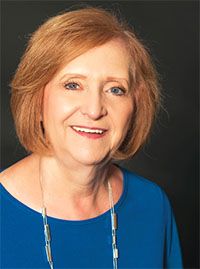 Ina Casali is an adjunct assistant professor of English and faculty adviser for the Student Veterans Association at Suffolk County Community College's Grant Campus. She helps her union advocate for adjunct rights.
Ina Casali is an adjunct assistant professor of English and faculty adviser for the Student Veterans Association at Suffolk County Community College's Grant Campus. She helps her union advocate for adjunct rights.
1. You served your country in the Navy. Can you describe your return to civilian life and journey into higher education?
Coming home after serving in the Navy WAVES during the Vietnam Era was very difficult. There was no warm welcome. Vietnam was not something veterans talked about, except to each other. My mother said I had become hard and tough. I was quiet and uncomfortable with the people around me. What I didn't realize at the time, is that I had changed, not the rest of the world. My college education was delayed due to a horrific car crash (which took many years and numerous surgeries to repair the damage to my face). At 37, I knew I needed an education. I wanted to make a difference. As the Marines say, "The journey never ends."
2. With increasing numbers of veterans enrolled in community colleges, what are some of the unique challenges they encounter?
Most feel out of place. They miss the camaraderie they had while in the military. As adviser to the Student Veterans Association, I hear veterans talk about having difficulty with civilian students' lack of respect and discipline and being uncomfortable when certain questions are asked of them. Their military experience has matured them far beyond their actual age. There is also PTSD and the lack of understanding by faculty, staff and students. Most veterans make excellent students because they are used to structure and nothing less than their best is acceptable.
3. What are the Student Veterans Association chapters on the SCCC campuses about?
SVA is an association where veterans can come together and find that camaraderie they knew in the military. No matter how old we are, where or when we served, male or female, it's an undeniable bond, like no other. We do projects that benefit other veterans, whether at the college or in the community. And sometimes, when we meet on campus or off, it's just a time and place to be together and to be who we are: veterans, people whose lives have been forever changed by their military service and who are learning to fit back into the civilian world.
4. As an adjunct instructor and union activist, can you isolate the biggest obstacles to equity for part-time faculty?
The biggest complaint I hear from my constituents is they feel excluded, that they are "just" adjuncts. Because they are part time and not always on campus, many meetings are not accessible to them. And, adjuncts are not usually selected for full-time positions.
5. As a member of the Faculty Association Executive Council, how has your role helped to promote fairness for adjuncts at Suffolk?
I've been an adjunct for 27 years and have worked outside the college full time, too. I have applied for full-time status, so I understand their frustration. If they understand an EC rep experiences the same situations they do, it creates a better relationship. I encourage them to get involved in the college and in the community.
As faculty, we can represent the college in the Long Island community. Without using your voice, you can't be heard nor can you expect to develop fairness in issues affecting adjuncts.